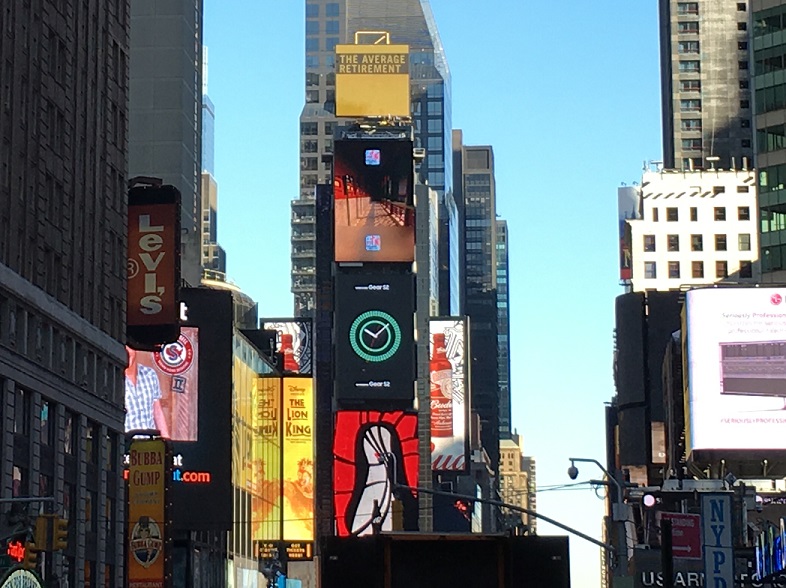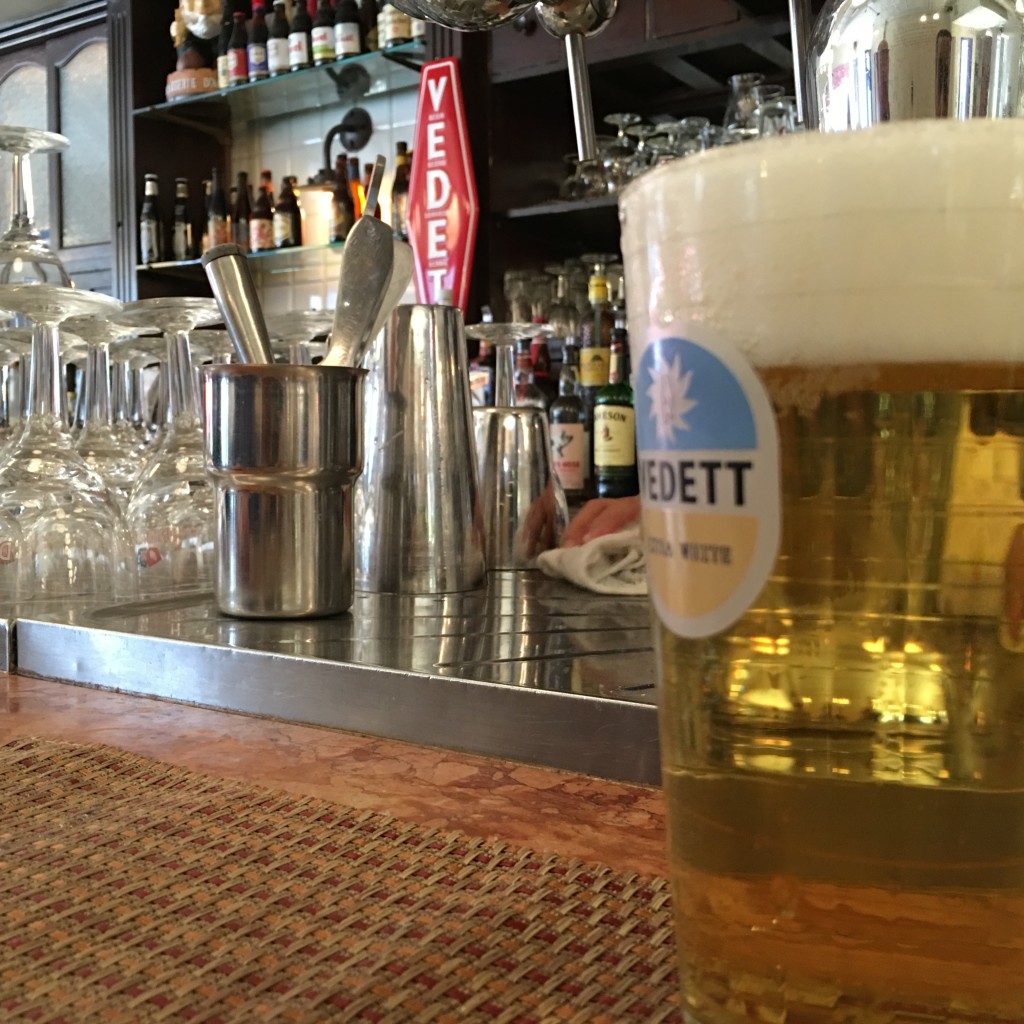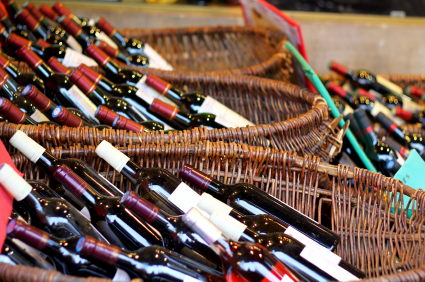
Insights
The Wine Rep's Guide to New York City
USA Trade Tasting will be hosting Sales Reps from international wine, beer and spirit companies and we want to give them the best chance at successfully generating new accounts with importers, distributors and retailers from around the USA.
Getting your wines into key accounts across the Tri-State market is a great way to substantially increase sales.
From highly sought-after accounts to small mom-and-pop bottle shops, every buyer profile is different and each can offer unique opportunities. In order to nurture a healthy partnership from the beginning, it is important understand how to cater your pitch and subsequently service every buyer`s specific needs. USA Trade Tasting will be hosting Sales Reps from international wine, beer and spirit companies and we want to give them the best chance at successfully generating new accounts with importers, distributors and retailers from around the USA.
Beverage Trade Network interviewed trade veteran Bryan Melo, NY/NJ Villa Maria Estate Brand Ambassador at Ste. Michelle Wine Estates, on essential sales strategies for wine representatives working the Tri-State area.
BTN: Many buyers in the tri-state area don’t know much about, or care about wine. How do you sell to these people?
First, recognize that your sales pitch to a customer is not about you, your story, or your winery. It doesn’t matter who you think you are- It is always, 100% about the customer and creating value for their business. To think otherwise is to provide a disservice to the customer and creates a bad name for sales people in our industry.
 That being said, to remain in business your prospect needs to purchase wine from somebody- so with the right sales pitch that relates to them & their business, you can create a win-win scenario.
That being said, to remain in business your prospect needs to purchase wine from somebody- so with the right sales pitch that relates to them & their business, you can create a win-win scenario.
As a reference point, keep the following facts in mind about operating in competitive markets such as NYC:
1) Retail shops and restaurants pay monthly rents that can range from the US $20k for space the size of a hotel room to $100k and beyond depending on the size & location of their establishment.
2) In order to make a profit they need to focus on bringing customers in the door, managing profit margins, and tracking average customer purchase values; not necessarily investing 10 years of education into viticulture and winemaking.
3) All stores have extremely limited shelf & storage space, which means it’s a difficult task for them to offer a wide variety of products and prices while still working in successful profit margins for the shop.
4) This right here is the golden nugget which all wineries need to understand----Every winery in the world wants to be sold in NYC. Buyers & shop owners have sales people come into their store from the moment they unlock the door in the morning until the store closes at night, they hear all kinds of sales pitches- including the good, bad and ugly.
BTN: What does this mean for brand reps? What can they do to cater to the buyer?
Sometimes, a brand will get sold based on the wine’s story and the quality of the wine. Other times, it’s a matter of finding the right product for the right store at the right price. If you prospect is more of a “business person” then a “wine person” take a walk around your prospects store- take a quick mental survey of the category of wine you are trying to sell to him/her. How many competitive wines are there? All at the same price point? Are there notable packaging differences between your item and the competitor? Does your product offer the ability for a higher profit margin? Are you offering something the customer doesn’t already have? or are you adding to their inventory problem? Remember that “cases sold” to us is “money spent” to them.
Once you have all of this figured out, create a sales pitch that will actually relate to the person you are speaking to instead of reciting the same message they hear from every winery representative about how old the winery is, how great the viticulture is, etc. etc. If your buyer says no- accept it and respect it. It’s not always a permanent no, it could just be a “not now”. As previously mentioned, space is an issue, cash flow is an issue. Follow up respectfully and you will earn your buyers respect. Don’t get too concerned with short term wins. It’s better to sell 100 cases over the course of a year then 1 case today. Play the long game and you will always come out on top.
BTN: What can reps expect when they are out in the field?
Expect buyers from all walks of life, who may or may not speak English as a second or third language. Some may taste, some may not. NYC & the tri-state area is home to a mix of people from all walks of life. Some people get into the wine business because they are truly passionate about wine. Many others open wine & liquor shops because they see the business as a retail opportunity and a way to make a living. Many of the most successful retail and restaurant locations are owned by immigrants from around the world who speak English as a second or third language & some from religions that forbid the consumption of alcohol altogether. Does this make pitching a new product difficult? Sometimes, but this is NYC we’re talking about-- and immigration is what makes our city beautiful.
Remember, the pitch is not about you- it’s about them. If your customer is not interested in wine, or chooses not to drink, why bore them with the same cookie cutter sales pitch you give everyone? Find out how your product will add value to their business. Does it have a calling in the neighborhood via local restaurants? Are you willing to do in store tastings? Do they currently not list anything like your product? Do you have attractive POS material that will trigger a consumer purchase? Are you currently running any marketing campaigns that will reach their customer base? If you can’t speak to this, what do you plan on saying?
BTN: How can brand reps differentiate the labels they represent from those of the competition?
Trade Lunches, Winemaker Visits & other traditional “brand building” activities. Remember, every winery in the world wants to be sold in NYC. Every winery spends a great deal of money on trade events for buyers to attend as well as sending winemakers to the market (flights, hotels, meals, etc.) What this results in is a constant daily flow of out of town visitors in the market as well as never ending events for buyers to attend. Because both are in such constant abundance, they lose their individual value.
 Believe it or not, it is often difficult to get an appointment with a buyer when you tell them a winemaker is coming with you. Many buyers specifically request to not have any out of town visitors brought to their store because they are not interested in hearing the same script they hear daily. Often times, the buyer will be doing a sales rep a favor by taking time of their day to attend your event or meeting with you and your winemaker.
Believe it or not, it is often difficult to get an appointment with a buyer when you tell them a winemaker is coming with you. Many buyers specifically request to not have any out of town visitors brought to their store because they are not interested in hearing the same script they hear daily. Often times, the buyer will be doing a sales rep a favor by taking time of their day to attend your event or meeting with you and your winemaker.
In some ways, our industry needs to remain open minded about new channels of brand building. In some cases, a $5000 wine maker visit for a day of short meetings can be used in new, untried ways to build a following. For example, for a fraction of the cost of a visit, your winery can run a social media marketing campaign where a winemaker tracks the harvest process via video feeds and constant updates, engaging with consumers & trade people daily to build loyal brand followers who will in turn request your product at a local store, resulting in the same end goal.
Don’t overlook the fact that buyers themselves spend lots of their personal time on social media, so why not try to engage your winemakers directly with local trade people digitally to build some sort of following instead of one (expensive) 10 minute meeting per year? Imagine how a trade buyer would feel about your brand if they have an ongoing twitter relationship with your winemaker, where they communicate with each other and are comfortable asking questions freely? Depending on your brand, winemaker visits & trade events may work, or they may not. Choose wisely how you spend your marketing dollars.
BTN: What should Reps do when preparing to talk with distributors?
When looking for distribution in NY, ask yourself if you would rather be a big fish in a small pond or a small fish in a very big pond. Both have their advantages and their disadvantages, however what’s right for your brand is ultimately a decision you need to make for yourself.
When dealing with distributors of all sizes, remember this:
1. Your distributor doesn’t work for you, so don’t expect them to. They have their own business to run with goals aside from your brand. Demanding 100% of their attention is a great way to ruin your relationship.
2. The job of a (good) distributor sales rep is flat out hard. It is high stress, long hours, and involves pressure to constantly keep everyone happy. Find the delicate balance of holding accountability while maintaining positive relationships with everyone.
3. Remember to teach people how to sell your brand. It’s one thing to tell them all about the winery, its history and the “story”. But it’s a whole different ball game if you can teach them what actually will sell the brand to a customer. What competitive products should they look for? What kind of store/restaurant does best with the category? What are common objections that the sales rep should look out for? How should they handle these objections before they come up? By doing so, you build confidence in the sales person that it’s an easy sale to make, and in turn they will feel more comfortable presenting the brand to a customer.
ALWAYS remember to add value. Remember that the key to success in the 3 tier system is teamwork, not delegation. What are your top tips on succesfully calling on new accounts in highly competitive markets? Pricing Keep your quantities low on a new product. Retailers & Restauranteurs generally don’t like the idea of buying 50 cases of a product they have never heard about just to be price competitive with other stores. If your customer runs out, they can buy more.
Moving inventory from your distributor’s warehouse to a retailer’s back room is not growing a brand. Inventory Don’t run out. Ever. End of story. “Famous” & “sought after” accounts
 Remember that when dealing with famous restaurants, high volume famous wine shops, and seasonal markets such as the Hamptons there is a direct correlation between the fame of the establishment and the difficulty of making a sale there. These types of placements take time, lots of cold calls, lots of follow up, lots of emails & lots of rejection. Sometimes they prove worthwhile with volume, other times they result in one of your wines being added to the wine list and sitting there for over a year. Prioritize what matters most to your brand, and choose how to spend your time wisely.
Remember that when dealing with famous restaurants, high volume famous wine shops, and seasonal markets such as the Hamptons there is a direct correlation between the fame of the establishment and the difficulty of making a sale there. These types of placements take time, lots of cold calls, lots of follow up, lots of emails & lots of rejection. Sometimes they prove worthwhile with volume, other times they result in one of your wines being added to the wine list and sitting there for over a year. Prioritize what matters most to your brand, and choose how to spend your time wisely.
Pro-tips to always teach new reps
1. Inclement weather can be your best friend. It’s amazing how few people you will see working the field on days of heavy rain or snow. If you’re tough enough to handle it, you can have some great days selling when everyone else is “working from home.”
2. First impressions matter in NYC. Dress well if you want to be taken seriously. Shoes included.
3. Put away the big 12 bottle rolling wine bag. Pick 4 bottles per day, carry them in a smaller bag that’s easier to take up a flight of stairs. You’ll be thanking the stars halfway through the day. Keep shelf talkers, tape, chill packs, business cards, pricing books and some water for yourself in your wine bag.
4. Lastly, don’t take yourself too seriously. You will get rejected in the worst of ways… and it will suck. NYC is cold. But it’s not your fault some people don’t know how to be civil. Remember it’s a game of odds. A tough rejection just means you are getting closer to your next big sale. Keep at it. (All opinions and observations expressed in this interview are entirely those of Bryan Melo and do not necessarily reflect those of Villa Maria or Ste. Michelle Wine Estates in any way.)
Looking to grow your distribution in the USA?
USA Trade Tasting (USATT) is an annual adult beverage trade specialist trade tasting and business conference that promotes sustainable growth in the independent beverage industry by helping boutique wineries, craft breweries, craft distilleries, importers, distributors, retailers and beverage companies to learn, source and grow. Exhibit your brand at USA Trade Tasting (USATT) and get the attention of USA’s leading importers, important distributors, high-profile retail merchants, and influential media executives.
Event Producer
Beverage Trade Network USA Trade Tasting is brought to you by Beverage Trade Network, the leading online platform dedicated to connecting the global beverage industry. Beverage Trade Network (BTN) successfully connects wineries, breweries, distilleries and brand owners with international importers, distributors, brokers and beverage industry professionals on a daily basis. Strong partnerships with international and US organizations have helped BTN establish USA Trade Tasting as a premiere sales and marketing event committed to connecting the beverage industry.
Become a USATT exhibitor and grow your distribution in the USA. Meet importers, distributors, retailers and press. Get exhibitor information here.


